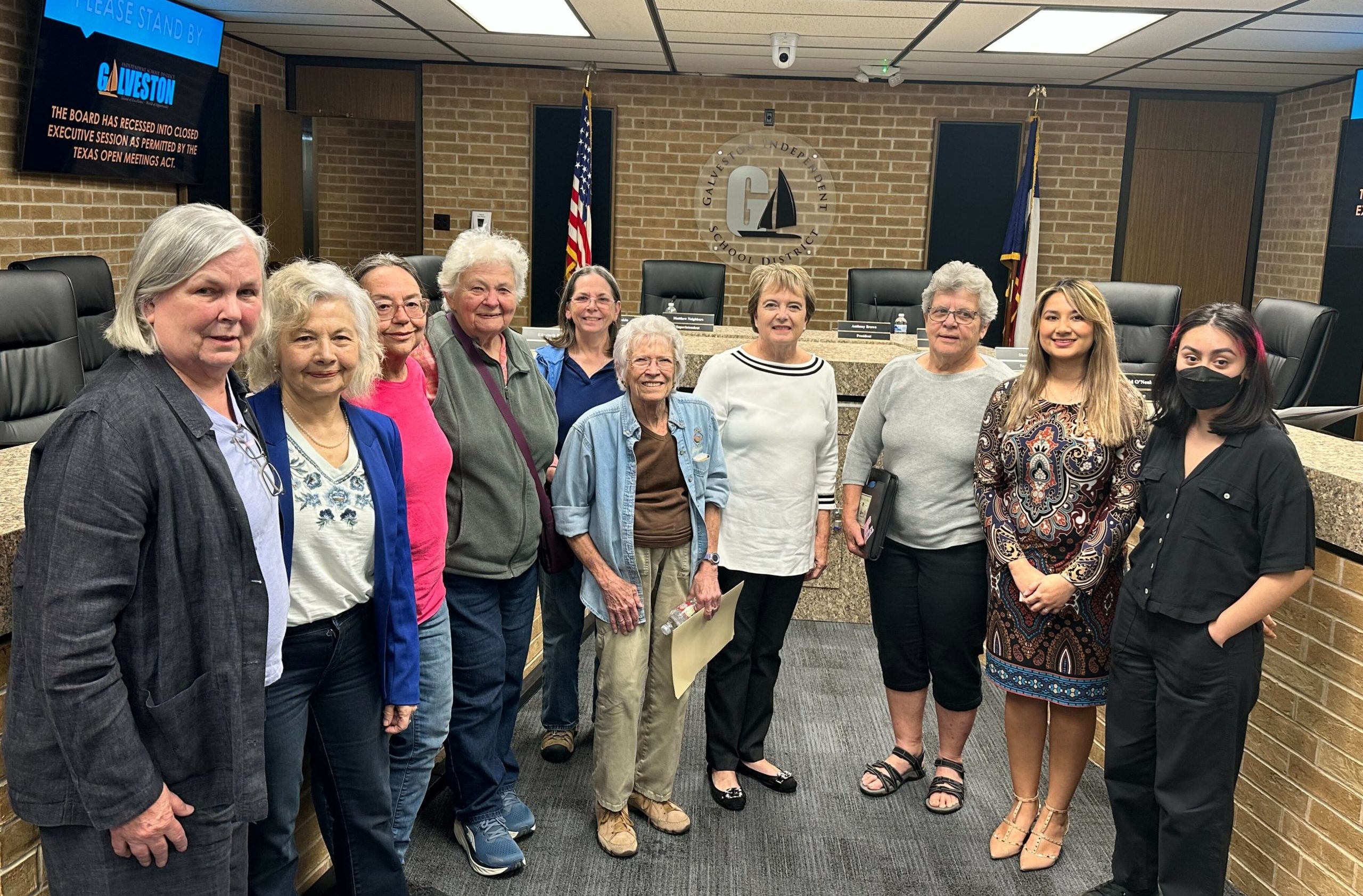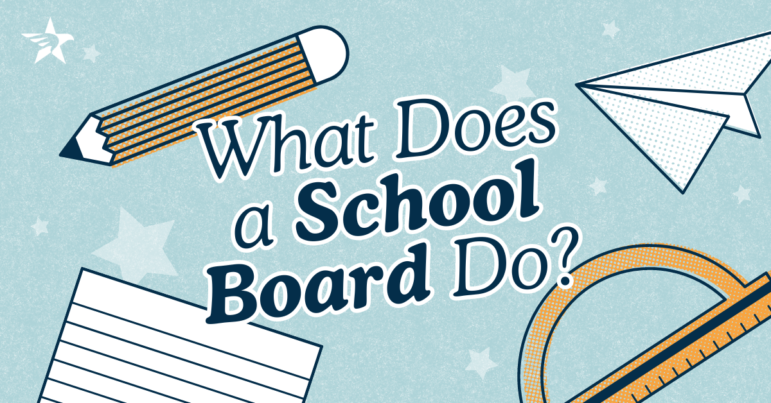TFN was founded in 1995 to counter the far right’s influence on our state’s politics and public education system, and we’re still true to those roots today. Our team advocates tirelessly for Texas public school students — fighting the radical right’s influence in local school board meetings, at the State Board of Education, and the Capitol.
A school board, sometimes called a board of trustees, is a governing body of 7 or 9 elected members that oversees an individual Texas Independent School District (ISD). They’re responsible for adopting the annual budget, setting a tax rate, appointing a superintendent, creating a vision for the district, creating policies that guide how the district operates, and much more. The decisions local school boards make directly and profoundly affect the schools — and students — they’re elected to serve.
Read on to learn more about the role of school boards and how you can show up for the education and rights of students in your district.
Are school boards partisan?
No — or at least they’re not supposed to be. In Texas, school board elections have been nonpartisan for more than a century with the assumption that quality public education shouldn’t be political. As you’ve probably seen by now, that notion is under attack.
How are school boards being politicized, and how is it affecting students?
Over the past few years, ultraconservative PAC networks funded by billionaires have been backing the campaigns of far-right school board candidates in the Dallas-Fort Worth and Houston suburbs. These boards with PAC-backed conservative majorities are doing everything they can to dismantle public education from the inside and push their single-minded, truth-censoring agenda on students.
Even school boards in areas far-right PACs haven’t yet reached are catering to extremists — and they’re taking their cues all the way from the top. During the 2023 Texas Legislative Session, lawmakers passed multiple bills attacking public education. One of them, book censorship bill HB 900, was partially blocked in court — but conservative school boards are still using it to fuel book-banning hysteria, intimidate librarians, and target LGBTQIA+ stories. There’s also SB 763, which allowed school boards to vote on whether to put unregulated religious chaplains in schools, violating the separation of church and state.
Yikes. Give me some good news, please 😩 Are communities fighting back?
Yes! Across the state, parents, educators, librarians, students, and concerned residents are showing up — physically and virtually — to hold their school boards accountable and protect our public schools from extremist influences. We’ll give you a few examples.

Cy-Fair ISD: The school board initially voted “no” on hiring religious chaplains in the district. Not long after, though, they threatened to go back on their word and added an agenda item to discuss creating a new position for chaplains in schools. TFN sent out a rapid response alert, and advocates packed the meeting. Thanks to public pressure, the proposed policy failed.
Keller ISD: In February, a school board member let a far-right, evangelical film crew film in a high school and interview students without obtaining district permission or parental consent. Parents and community members voiced their outrage, and the board member has since resigned. Another involved board member issued a public apology.
Statewide: Austin Public Library and the Library Foundation launched a statewide social network for teens to keep access to banned books. The “Save The Books Social Network” is a teen-driven space for young people who want to have a voice in protecting their freedom to read.
Community organizing makes a difference!
How can I hold my school board accountable?
- Pay attention to what your local school board is doing. School board meetings tend to fly under the radar — and that’s how far-right members want it. So, don’t let that happen! Meetings are open to the public, and members of the public have the right to comment on agenda items. Attend your local meetings, give public comments, and make sure members know the people who elected them to serve the best interests of students are watching and holding them accountable.
- Make sure to vote in your local elections. The choices made by your elected school board have a direct and profound effect on issues like curriculum, funding, student services, and more. Turnout for these elections tends to be low, which makes your vote all the more important. By engaging in your local school board elections, you’ll directly impact protecting our community’s future. Visit our Elections Hub for everything you need to be an informed voter in local, state, and national elections.
Our students are our future. They deserve access to a quality, truthful education, and leaders who will put their wellbeing before political interests. Sign up for our Teach the Truth updates to stay informed about public education and the many ways you can get involved.


